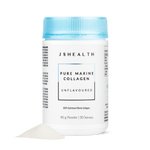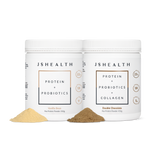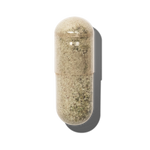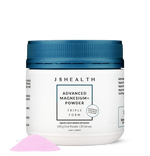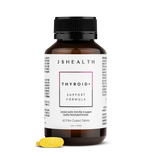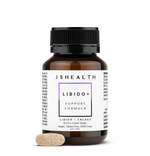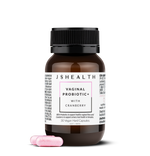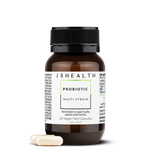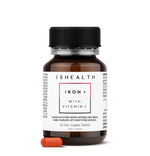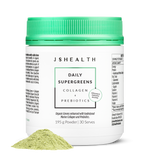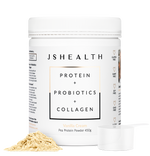Reducing the Bloat: Your Ultimate Guide to Bloat Relief
Have you ever experienced that uncomfortable feeling of bloating after a meal, where your stomach feels tight and gassy? Don't worry, you're not alone. Bloating can happen to anyone, and it can really throw a little hiccup into your day.
Here's the good news: there are ways to ease bloating and find relief. We've gathered some effective strategies and methods to help reduce the bloat so you can feel more comfortable in your own skin.
What Is Bloating?
Bloating is a general term to describe a feeling of abdominal fullness or the appearance of a full stomach. Bloating can be caused by an accumulation of gas in the digestive tract or fluid within the body.
Here’s a closer look at these types of bloating and how they are different.
Fluid Bloating
The most common type of fluid-associated bloating involves bloating associated with the menstrual cycle. Throughout the menstrual cycle, hormones fluctuate, and some of these hormones can cause your body to hold on to more water.
Fluid retention such as that experienced during the menstrual cycle can result in a minor swollen appearance but will typically recede as time continues.
Fleeting bouts of swelling can be normal, but if fluid accumulation persists without a known cause, you should schedule a visit with your care provider to rule out other health conditions.
GastrointestinalBloating
When someone describes feeling bloated, more than likely they are referring to the feeling of gas buildup or fullness in their digestive tract. The GI tract is a hollow organ that helps your body extract nutrients and energy from food.
When gas starts to build up in the digestive tract, it can take up more room within your body leading to visible bloating and discomfort.
What Are the Causes of Bloating?
Feeling bloated can sometimes seem incredibly random, but if you pay close attention there is typically a root cause. Being aware of these causes can allow you to be more mindful of what could contribute to your bloat.
Here are some of the most common causes of bloating.
Hormones
As stated previously, bloating associated with the menstrual cycle is quite common and the underlying cause of this form of bloating is the hormonal changes that occur during the month. Hormones act as chemical messengers within the body that help regulate bodily functions but can also cause several other effects.
A prime example of this is hormones like oestrogen, which can increase water retention and GI sensitivity and cause individuals to feel more bloated.
Constipation
The GI tract is continuously moving the food you consume through the system of organs. This consistent movement of food is important in the optimal working of your digestive tract.
Constipation occurs when digested material takes longer than normal to pass through the digestive tract. The longer time spent in the digestive tract can cause digested material to become more difficult to have bowel movements and can lead to feelings of bloating.
A lack of motility in the GI tract can also contribute to gaseous buildup within the hollow organs of your digestive system. This buildup can stimulate a sensation of pain and discomfort associated with belly bloat.
Air Ingestion
Bloating is most commonly associated with the buildup of gas in the GI tract. While this gas can form from the digestive process over time, it can also be introduced while eating. Air ingestion can occur if an individual eats too quickly or consumes food products with dissolved gas, such as carbonated beverages.
Food Intolerance
At some point or another, you have likely heard of food intolerances. One of the most common food intolerances is lactose intolerance, in which an individual has a hard time digesting dairy products. Still, there are dozens of other food intolerances that people experience.
Most food intolerances are caused by a lack of digestive enzymes to digest a particular molecule. The body naturally produces digestive enzymes and can break down molecules without forming gas as a byproduct.
For individuals lacking these enzymes, these molecules find their way into the large intestines, where bacteria break it down and subsequently release gas that can build up and contribute to a bloated feeling.
Gut Microbiome
Many microbes within the digestive tract help break down the food you eat. These healthy microbes play a vital role in allowing your body to extract the most nutrition out of food possible.
While these microbes are essential to gut health, they can contribute to gas buildup when provided with certain foods. Specifically, foods that contain short-chained carbohydrates known as FODMAPs (fermentable oligosaccharides, disaccharides, monosaccharides and polyols) can increase gaseous byproducts in certain individuals.
The human body does not easily digest these short-chained molecules, but they are readily digested by microbes which can yield excess gas. Some examples of these molecules include artificial sweeteners found in packaged foods like chewing gum, fructose and carbohydrates found in lentils.
How To Prevent Bloating
One of the most empowering things you can do is discover ways to keep bloating at bay. Let's dive into some steps you can take to prevent the bloat altogether.
Mindful Eating
In today's world, we are constantly bombarded by stimulation, and when it comes to eating, it can cause us to mindlessly eat and inadvertently ingest air that contributes to bloating. A great way to help you prevent this is to practise mindful eating.
Rather than eating a meal while watching TV consider having a sit-down meal and savour each and every bite. Taking the time to slow down and be more mindful about your eating can help you not introduce excess air and help lessen bloating frequency. Mindful eating can also help you to avoid overindulgence and overeating.
Support Healthy Gut
The importance of a healthy microbe population in the colon is becoming increasingly clear as research continues to grow. A healthy gut microbiome has been shown to help strengthen gut integrity, support immunity and more.
Eating a well-balanced diet is a great way to help support a healthy gut microbiome, but there are also supplements you can take to help further support healthy microbe colonisation in the gut (probiotics).
Adjust Diet
Food sensitivities and intolerances can contribute to bloating. Learning which foods these are and making appropriate changes to your diet can allow you to be proactive and stop the bloat before it can even happen.
In some cases, like those with lactose intolerance, there may also be options for you to take digestive enzymesupplements like lactase to allow you to still enjoy the foods you are sensitive to.
How To Manage Bloating
Despite your hard efforts of prevention, bloating can still strike, and being aware of the options can allow you to achieve relief quickly. Here are some ways to achieve some level of relief when bloating strikes.
Summary
Bloating can cause significant abdominal pain and discomfort, negatively impacting your ability to live life to its fullest. Equipped with the information on bloating, its causes, means of prevention and actions you can take when it strikes, you can begin living life devoid of bloating.
Sources:
Pathophysiology, Evaluation, and Treatment of Bloating | NCBI


